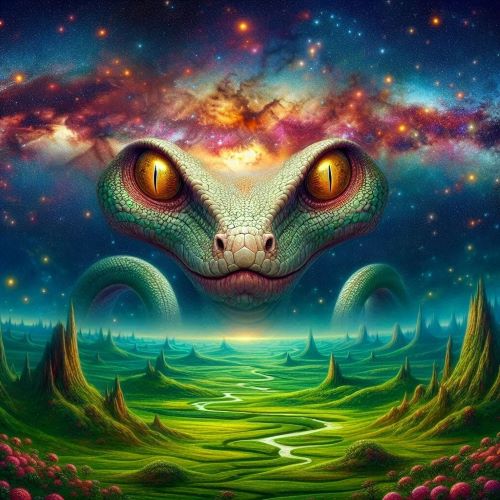Vodun gods, also known as loa or vodun, are central figures in the rich spiritual traditions of West African Vodun, primarily practiced in regions like Benin, Togo, and Ghana. These gods are deeply connected to the forces of nature, human life, and the cosmos, serving as intermediaries between the supreme creator and humans. They are believed to govern various aspects of existence, from fertility and agriculture to justice and the afterlife. They play a vital role in the spiritual lives of their followers, with rituals, sacrifices, and ceremonies performed to gain their favor or avoid their wrath.
Each Vodun god is associated with a specific domain of life or element of nature, such as water, earth, or the sky. For instance, Legba, one of the most well-known Vodun gods, acts as the gatekeeper between the human and spiritual worlds, facilitating communication with other gods. Similarly, Mami Wata is revered as a powerful spirit associated with water, wealth, and healing. These gods are not distant or abstract figures; they are actively involved in the lives of individuals and communities, guiding them through moral and ethical decisions, as well as helping them navigate the challenges of daily life.
The relationship between humans and Vodun gods is deeply reciprocal. Followers honor the gods through elaborate rituals, offerings, and songs, in return for blessings, protection, or intervention in personal matters. Vodun ceremonies are vibrant and communal, often involving drumming, dancing, and spirit possession, where practitioners believe the gods temporarily inhabit their bodies to deliver messages or provide guidance. This close, personal connection to the divine reflects the belief that Vodun gods are both approachable and deeply intertwined with the natural and social world of their followers.
Vodun mythology is filled with stories of gods who display both human and divine qualities, making them relatable yet powerful figures. Some Vodun gods, like Dan, the serpent god, are symbols of balance and renewal, embodying the cycles of life and death. Others, like Shango, the god of thunder and lightning, are known for their fierce temper and association with justice and war. These gods can be both benevolent and punishing, depending on how they are approached and treated by their devotees. The complexity of Vodun gods highlights the belief that they embody multiple facets of life, from creation to destruction, and everything in between.
The influence of Vodun gods extends far beyond their West African origins. Through the transatlantic slave trade, Vodun beliefs and deities spread to the Americas, particularly in Haiti, Cuba, and Brazil, where they blended with indigenous and Christian traditions to form new spiritual practices like Haitian Vodou and Brazilian Candomblé. Despite these adaptations, the core reverence for Vodun gods remains, as they continue to be powerful figures of cultural and religious identity. Today, the legacy endures, reflecting the resilience of these ancient spiritual traditions and their deep connection to the human experience.
Vodun gods, also known as loa or vodun, are central figures in the rich spiritual traditions of West African Vodun, primarily practiced in regions like Benin, Togo, and Ghana. These gods are deeply connected to the forces of nature, human life, and the cosmos, serving as intermediaries between the supreme creator and humans. They are believed to govern various aspects of existence, from fertility and agriculture to justice and the afterlife. They play a vital role in the spiritual lives of their followers, with rituals, sacrifices, and ceremonies performed to gain their favor or avoid their wrath.
Each Vodun god is associated with a specific domain of life or element of nature, such as water, earth, or the sky. For instance, Legba, one of the most well-known Vodun gods, acts as the gatekeeper between the human and spiritual worlds, facilitating communication with other gods. Similarly, Mami Wata is revered as a powerful spirit associated with water, wealth, and healing. These gods are not distant or abstract figures; they are actively involved in the lives of individuals and communities, guiding them through moral and ethical decisions, as well as helping them navigate the challenges of daily life.
The relationship between humans and Vodun gods is deeply reciprocal. Followers honor the gods through elaborate rituals, offerings, and songs, in return for blessings, protection, or intervention in personal matters. Vodun ceremonies are vibrant and communal, often involving drumming, dancing, and spirit possession, where practitioners believe the gods temporarily inhabit their bodies to deliver messages or provide guidance. This close, personal connection to the divine reflects the belief that Vodun gods are both approachable and deeply intertwined with the natural and social world of their followers.
Vodun mythology is filled with stories of gods who display both human and divine qualities, making them relatable yet powerful figures. Some Vodun gods, like Dan, the serpent god, are symbols of balance and renewal, embodying the cycles of life and death. Others, like Shango, the god of thunder and lightning, are known for their fierce temper and association with justice and war. These gods can be both benevolent and punishing, depending on how they are approached and treated by their devotees. The complexity of Vodun gods highlights the belief that they embody multiple facets of life, from creation to destruction, and everything in between.
The influence of Vodun gods extends far beyond their West African origins. Through the transatlantic slave trade, Vodun beliefs and deities spread to the Americas, particularly in Haiti, Cuba, and Brazil, where they blended with indigenous and Christian traditions to form new spiritual practices like Haitian Vodou and Brazilian Candomblé. Despite these adaptations, the core reverence for Vodun gods remains, as they continue to be powerful figures of cultural and religious identity. Today, the legacy endures, reflecting the resilience of these ancient spiritual traditions and their deep connection to the human experience.

